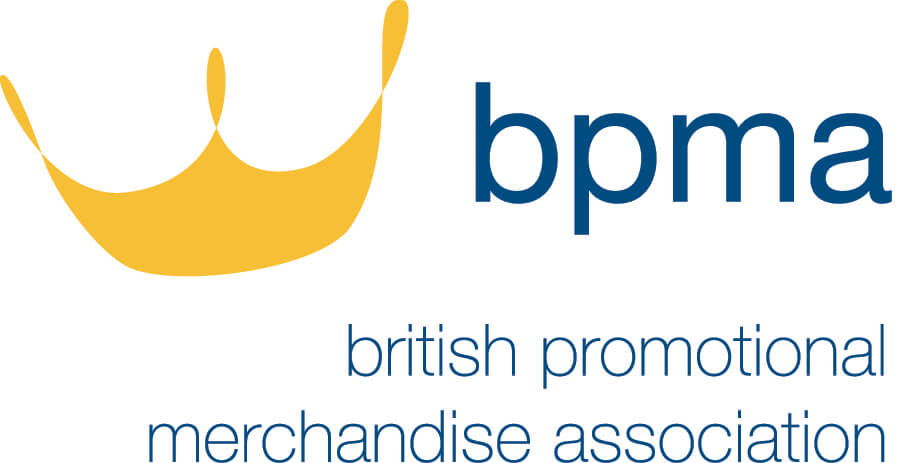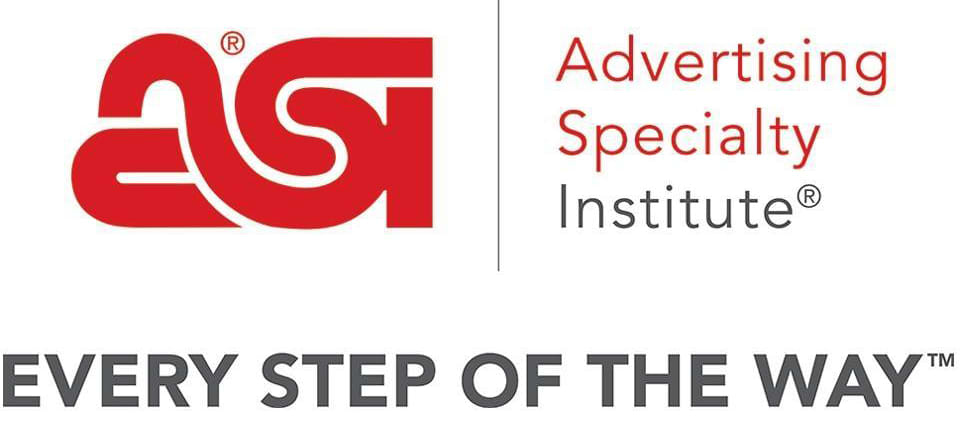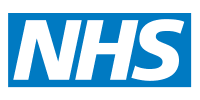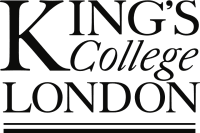What is promotional merchandise and why is it so effective?
Promotional merchandise, promotional products, promotional items, promotional gifts… Whatever you want to call it, there's no getting away from the fact branded merchandise items are usually high-impact, low-cost items that are printed with a company logo, contact details or straplines to help accentuate a marketing campaign or amplify a giveaway promoting a brand, product or event.
But does it actually work?
In a word, 'yes'. Sure, you're probably thinking that we would say that - and yes, we would 100% back promotional merchandise as the most effective marketing tool a business can have to help generate awareness for itself.
However: there are a lot of important stats that support our belief, with research from the British Promotional Merchandise Association (BPMA) uncovering some interesting stats about consumer attitudes towards branded merch.

Asking buyers and marketeers about why they incorporate promotional merchandise into their marketing plans, the BPMA found 69% of the professionals quizzed said they believed it 'targets customers effectively', with 52% believing it helps a marketing message 'last longer'.

And what about their reasons for using it? According to the study, 63% rely on promotional merchandise for 'brand awareness and rebranding', with almost three-quarters revealing they use it at conferences and exhibitions to help generate brand awareness. Reasons for using promotional merchandise include 'causing awareness' and because 'promotional merchandise is often highly-effective for getting attention and driving sales'. And what more could you want for your business than that?

The PPAI (Promotional Products Association International) also published a survey on the whats, whys and hows of promotional merchandise, with 96% of the buyers quizzed revealing they considered branded products to be an effective form of advertising.
When do brands use promotional products?
Close to three-quarters (68%) of the people quizzed said they are most likely to use promotional items as part of a new marketing initiative. Events such as trade shows, corporate seminars and conferences are all considered to be the best time to use branded products, with around half of businesses using their promotional items in business meetings, during sales presentations or to send out directly in the post.
Quality (73%), type (63%) and cost (55%) were revealed as the three biggest influencers when buyers were quizzed on what steers their purchase options, with eco-friendliness another important factor for consideration.
Why are promotional items so effective?
According to the Advertising Speciality Institute (ASI), the promotional products industry is thriving because branded items such as hats, T-shirts and bags are “travelling advertisements that leave a lasting impression”.
An ASI Industry Study in 2016 calculated the number of impressions (or views) each promotional product receives based on how long an item is retained and how many people come into contact with that item on a monthly basis; the figures are impressive, with branded clothes, bags and pens in the Top 5 on both sides of the pond. Calendars made the Top 5 in London, with caps being more popular in the US.
When asked to rate the popularity of up to three promotional items received over the prior 12 months, pens were the most popular item among UK respondents, with t-shirts, calendars, bags and drinkware completing the top 5.

Across all the countries surveyed, 'useful' was the top reason for keeping a promotional product, so if you're considering adding a promotional product to your marketing or direct mail campaign, consider your audience demographic and what they would most value.
A case in point
If you needed any further convincing of the power of promotional merchandise in building your brand, surely the rise of Donald Trump from TV personality and business tycoon to President of the United States of America is a case in point. During his presidential campaign, Trump spent $3.2 million just on his red “Make America Great Again” caps. Once in office, he spent $2.4million on t-shirts, mugs, banners and stickers and another $728,000 on caps in a single month after his election according to figures released by the ASI.
In fact the Trump campaign spent far more on promotional merchandise than it did on more traditional areas such as polling, TV advertising or campaign staffing – and way more than the Clinton team – while his total campaign spend was only $33.6 million compared to Hillary Clinton's $176.2 million, so it's certainly feasible that Trump's investment in what political insiders refer to as “collateral” helped him win the hearts and minds of the people where it mattered most.
And thinking about news coverage of the Republican rallies around the Midterm elections, it's clear that the White House is still investing heavily in those “Make America Great Again” baseball caps. How much might that have cost in advertising revenues to get the same level of brand promotion into homes across America? The ASI puts the cost per impression at 2.5 cents for primetime TV and just 0.7 cents for a promotional item! In short, promotional merchandise targets customers effectively, ensures brand messages last longer and creates loyalty at a low cost per impression.
Here at Total Merchandise we have been living and breathing promotional products for over 14 years and pride ourselves on the quality of our merchandise, our competitive prices and our customer service. We are also continually adding to our range of environmentally friendly and recycled products, as well as vegan-friendly alternatives to leather.
If promotional merchandise is part of your future marketing mix, we'd love to help you put a shortlist of potential products together so give us a call on 01376 509092.
Who's who in the industry?

Established in 1965, the British Promotional Merchandise Association (BPMA) is one of the UK's leading industry bodies dedicated to promoting best practice around the sourcing, manufacturing and distribution of promotional products. With more than 600 members, the BPMA is a creative and vibrant organisation setting the benchmark for expertise, quality and professionalism across the promotional marketing industry.

Since 1903 – when a dozen promotional products manufacturers decided to form an industry trade association - the Promotional Products Association International (PPAI) has been the trusted authority in the promotional products industry, delivering essential knowledge, resources and community to ensure to success of its members. It currently has over 15,000 members worldwide, including those who manufacture, import and resell promotional items, as well as the promotional products industry itself.

Launched in 1950, the Advertising Specialty Institute (ASI) is the promotional merchandise industry's largest membership organisation. The ASI offers media, technology, marketing and education to help cultivate success and community. Members of the ASI include both manufacturers and suppliers of promotional products, with the organisation citing its mission as being 'the trusted partner of the promotional products industry by fostering its success every step of the way'.
-
Q: What is promotional merchandise?A:
Promotional merchandise is the name given to products that are printed with a company's branding, including the business logo and/or contact details. Branded merchandise items are often low-cost and high-impact products that help to generate positive awareness, brand recognition and customer loyalty for a business or organisation.
This definition of promotional products is typically applied to items that are given away free of charge to help a business draw attention to a range, product, service or event. -
Q: What are the advantages of using promotional merchandise?A:
Investing in promotional merchandise for a marketing campaign or awareness drive has many benefits and advantages. Promotional products can offer long-lasting impact and brand awareness for your business; this is especially helpful for ensuring your business stands out and is memorable amidst competitors at events and trade shows.
Branded merchandise is cost-effective, with items available to suit budgets of all sizes. Promotional giveaways are ideal for integrating into a modern marketing mix, helping to create a sense of brand loyalty with your customers as well as with your staff. -
Q: What are the disadvantages of ordering promotional merchandise?A:
In comparison to the manifold benefits of investing in promotional merchandise, there are a couple of small issues you might run into when incorporating promotional products into your marketing mix. If your business rebrands and has a new logo, all pre-existing promotional merchandise is effectively rendered 'out of date', whilst some branded items might not be large enough to accommodate bigger logos. However, speaking to experts within the industry is a great way to feel assured that you're making the right choices and picking the branded items that best fit the requirements of your business.
-
Q: What is the return on investment (ROI) of promotional merchandise?A:
Research shared by the Advertising Specialty Institute revealed that branded merchandise items can garner many thousands of impressions, with the practicality or usability of a promotional product influencing its likelihood to be used or worn on a regular basis. Of course, measuring the precise return on investment (ROI) of promotional products isn't as straightforward as measuring the ROI of other marketing activities, such as the click-through rates of platforms such as digital banners or newsletters.
When ordering branded merchandise, it can be useful to know how you will measure the ROI of your campaign in advance. Printing a call-to-action on your products or trying A/B testing with two different promotional items and two different CTAs can offer a highly effective way to monitor the ROI of your merchandise. -
Q: Why use promotional merchandise?A:
Choosing promotional products for your upcoming marketing campaign or brand awareness drive is a cost-effective way to ensure your logo and branding becomes more visible to customers.
Branded items, such as printed cotton tote bags, promotional mugs and printed pens, all offer long-lasting visibility to your branding, with the potential to keep your logo at the forefront of people's minds.
Whether your promotional products are used at home or at work, picking branded items that can be incorporated into meaningful activity is a great way to ensure daily awareness for your business. Promotional products are also a great way to get your business quite literally in the hands of your customers, whether existing or potential. -
Q: What are the other names for promotional merchandise items?A:
Promotional products can be referred to by many different names! Other popular words and terms for branded giveaways include printed products, promotional materials, branded giveaways, freebies, branded merchandise and swag.
-
Q: What are the most popular promotional products in the UK?A:
According to research shared by the Advertising Specialty Institute in 2019, the most influential promotional products in the UK include branded power banks, promotional drinkware and branded USB sticks. Other popular promotional products in the UK include: promotional pens, printed cotton tote bags, promotional T-shirts, printed bags and branded umbrellas.
-
Q: What are the most effective promotional products?A:
According to research shared by the Advertising Specialty Institute (ASI), the branded items that are likeliest to generate the most impressions and awareness for a business include: promotional pens, branded mugs, printed t-shirts, promotional bags, branded caps, randed desk accessories, branded polo shirts and promotional USB sticks.
-
Q: Do promotional items really work?A:
According to research shared by the British Promotional Merchandise Association (BPMA), 96% of recipients believe that promotional merchandise increases their awareness of a brand; 79% of consumers are more likely to do business with a brand after receiving a promotional giveaway from it.
-
Q: Why are promotional products important?A:
Promotional products are important as they can offer businesses a new way to reach customers that are both potential and existing. Budget-friendly and affordable, they offer a low-cost marketing tool that can be utilised in-person and through the mail. Often long-lasting and with a practical purpose, promotional products are also a great means to generate meaningful brand awareness and loyalty, too.
-
Q: What's trending in promotional items?A:
Whilst there are definite all-time popular promotional products, promotional merchandise trends can also give you a good idea of on-the-pulse ideas for your marketing campaign.
For an up-to-date take on your next promotional merchandise order, consider one of these trending ideas: eco-friendly promotional products to show environmental awareness; promotional desk accessories for working from home or in the office; individually named promotional products, for an extra personal touch; branded merchandise that has been made in the UK. -
Q: Does promotional merchandise fit in the marketing mix?A:
Promotional products are a proven way to generate success for a UK marketing campaign. Offering low-cost awareness for your business, promotional giveaways are a great way to trigger brand awareness, customer loyalty and improve visibility for your business within an often-crowded marketplace. As advertising strategies have evolved over the decades to include other forms of advertising, branded merchandise has remained a steady part of the marketing mix.
Promotional giveaways printed with your logo can't be switched off, scrolled past or turned down; rather, they offer tactile awareness for your organisation. Research conducted by the British Promotional Merchandise Association (BPMA) finding 79% of consumers are more likely to do business with a company after receiving a branded giveaway. -
Q: What is the difference between merchandise and products?A:
The key difference between merchandise and standard products is that merchandise is printed with a company's logo.



























